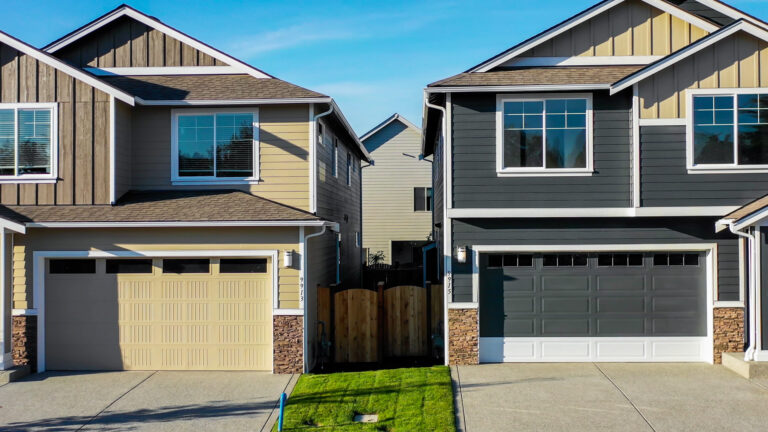
So, let’s look at how the housing affordability issue has evolved over the past year and learn from experts what homebuyers can do to overcome these challenges.
Why have homes become so much less affordable in 2021?
“If you look at where we are today versus a year ago, the median price of a home in the U.S. is up 24 percent,” explains Barry Rothman, housing counseling program manager at Consolidated Credit. “A year ago, in 2020 the median price was $285,475. Now it’s $352,400.”
Lack of inventory is driving up home prices
Catherine Albamonte, a mortgage loan officer with Truist, explains why home prices have risen so dramatically, particularly in markets like South Florida.
“There’s very, very little inventory right now. It’s a sellers’ market,” Albamonte explains. “We’ve got people that are coming in from other parts of the country, that are paying cash—that are paying over appraised value. And that’s not something that a first-time homebuyer should or would do. So, it’s definitely impacting first-time buyers, especially the ones that are in the low or moderate-income bracket.”
Albamonte indicates other factors, such as issues with the financial stability of condominium buildings, are also affecting the available property inventory that homeowners can buy.
“There are a lot of condominiums where they don’t have sufficient reserves, or they have pending litigation, or they have too many delinquencies in association fees,” she explains. “We wouldn’t extend a loan for a condominium that doesn’t have sufficient reserves or has too many delinquencies. It’s not a good situation.”
So, even if there are homes that would be priced affordably for buyers, they would not be able to get a mortgage once the lender sees any of those issues.
Rising home prices are only one factor affecting affordability
A rise in home prices naturally means a rise in monthly mortgage payments. The principal portion of the payment has increased because homes are more expensive now. So, potential buyers are looking at higher payments.
And unfortunately, two other mortgage payment factors have increased as well. Traditionally, mortgage payments are made up of four components:
- Principal
- Interest
- Taxes
- Insurance
While interest rates have remained at historic lows this year, property taxes and insurance have both increased.
Property taxes
“When prices go up, property taxes go up too,” Rothman explains. “As a general rule of thumb when you’re estimating, property taxes are about 1.2% of the property value. So, looking at a median-price home, the property tax portion of the monthly have risen from $285 per month for a $to $352.”
Insurance
“Insurance rates are also going through the roof right now,” Rothman continues. “Natural disasters—hurricanes in the Atlantic and Gulf, tornadoes in the South, floods in the Northeast—all of it means the cost of reinsurance for insurance providers has risen dramatically. And that has translated to much higher insurance premiums for homeowners.”
In Florida, where Consolidated Credit is based, those increases have been particularly steep.
“For a condo a year ago that was valued at $130,000, the insurance would be about $2,000,” Rothman says. “This year, that same unit is at $2,600.”
It all adds up to much higher monthly costs
“It’s jumping by a huge margin. It comes out to a monthly price of $2,243, where a year ago the monthly payment for the same property would only have been $1,807,” Rothman continues. “So, the housing payment on the same house would now take a much higher percentage of a homebuyer’s income.”
This chart estimates how the four components of a monthly mortgage payment for an FHA loan on the same median-priced property have increased from 2020 to 2021. It also offers a projection for 2022 based on what experts predict may happen next year. These estimates include the Mortgage Insurance Premium (MIP), which is required insurance to protect a lender in case of default on an FHA loan.
Costs upfront have also risen significantly
“If you’re doing an FHA loan at 3½ percent down on a median-priced home, the down payment would be $12,334,” Rothman explains. “FHA buyers also pay an upfront mortgage insurance premium, which for this year for a median home would be $5,951. So that brings the total out-of-pocket cost at closing to $18,285. A year ago, it was roughly $4,000 cheaper.”
This chart estimates how the upfront costs for an FHA loan on a median-priced home have increased from 2020 to 2021. It also shows how experts predict these costs may continue to increase in 2022 if home prices continue to climb.
What can homebuyers do to overcome the affordability gap?
While the affordability issue may seem insurmountable, our experts say there are things that homebuyers can do to get ahead. It starts with two key points:
- Be patient
- Focus on your financial fundamentals
Homebuyers need to be prepared that they may lose a home they want to a cash offer or to a buyer that’s willing to pay more than the appraised value.
“Be patient,” Albamonte encourages. “If it’s meant to be, it’ll happen.”
She also says that while you’re being patient and waiting for the right home to come up at the right price, concentrate on all the factors that can help you get approved for your mortgage.
Tip #1: Build your credit
“Credit is king,” Albamonte says. “Keep your credit clean even if you are going to be using any kind of down payment assistance. And keep in mind that you do need to have savings of your own, so that’s another big one.”
Rothman agrees, saying that some FHA mortgage lenders are even increasing their minimum credit score requirements.
“For the Federal Housing Administration—FHA—their base credit score requirement is 580,” Rothman explains. “But banks are putting overlays on that and saying ‘No, no, no. I don’t want a 580 borrower for an FHA loan. In fact, to get a loan with us, you’re going to have to be at a 640 or 650 or even 675.”
Tip #2: The right real estate agent can help
Albamonte also indicates that choosing the right real estate agent can be crucial. You need someone that can present your offer in the best light possible. But again, even if you’ve gotten mortgage pre-approval and have earnest money set aside, you need to be prepared to get beat out by a cash buyer.
“If [a seller] has an offer that’s contingent on down payment assistance, they’re more likely to take the cash offer. That’s only human nature.”
Tip #3: Pay attention in your first-time homebuyer course
First-time buyers often take a first-time homebuyer course. It’s an 8-hour course that covers everything a buyer needs to know about the homebuying process. After the course, you meet one-on-one with a HUD-certified housing counselor to set a plan so you can become mortgage-ready.
Getting certification from this course is often required to qualify for down payment and closing cost assistance programs. But Albamonte encourages buyers not to treat this course as a check-the-box exercise.
“It surprises me a lot of time that people go through the training, they sit with housing counselors. And then they come to me and I would never know that they went through a training class.”
Take an active role when you take the homebuyer course. Take notes, if possible, and write as much down as possible so you can refer to it as you begin the homebuying process. After you meet with your housing counselor, follow their recommendations carefully to ensure you are mortgage-ready.
Tip #4: Make sure to plan for the whole cost of homeownership
Another thing that a housing counselor can help you do is to build a budget for becoming a homeowner. That way, once you get approved and get into your new home, you’re prepared for all the costs you will now need to cover as a homeowner.
“A lot of people look at the homebuyer counseling and think it’s just about the mortgage,” Rothman explains. “But there’s really another side of it, which is, what does it entail to be a homeowner and what do I need to know about.”
Rothman says housing counselors can help walk you through the costs that will inevitably come up when you’re a homeowner. That guidance can be crucial to ensure you can maintain financial stability once you move in.
“People get a little surprised when they find out what the price tag really is and what their responsibilities are,” Rothman says. “A lot of people are unprepared for it because they’ve been renting. They’re not used to having to cover these things themselves and cover costs out of their own pocket.”
Tip #5: Be upfront with the people supporting you
The last piece of advice that Cathy Albamonte has is that whether you’re talking to a housing counselor like Rothman or talking to a loan officer like her, make sure to be honest.
“Tell us what’s really going on, tell your housing counselor,” she encourages. “Tell your loan officer what’s going in on and what you know. Where is your money coming from? Just put all your cards on the table and keep it real.”
By being honest about your situation and concerns you may have about your finances as you work to buy your home, the professionals supporting you can give you the best advice and support possible. That’s the best way to ensure you can achieve your goal of homeownership in such a competitive market.
Take the right steps to get ready to buy a home
While the market may be challenging, with the right help and guidance, it’s possible to overcome those challenges to achieve your goal. Consolidated Credit can help. Our housing counseling team can help you customize an action plan that puts you in the best possible position to buy.
Call 1-800-435-2261 for a free homebuyer evaluation with a HUD-certified housing counselor.
